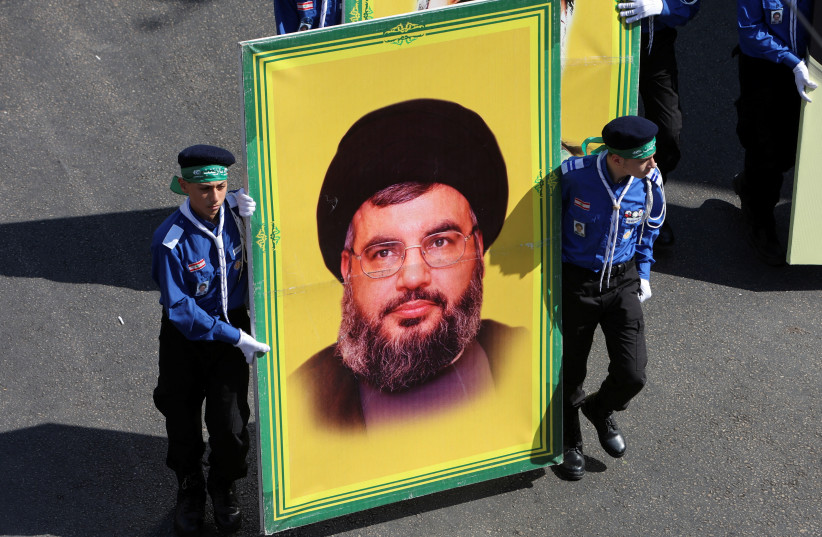As the maritime deal between Lebanon and Israel is in its final stages, Defense Minister Benny Gantz warned that Iran is trying to buy Beirut with fuel, and in turn establish bases on Lebanese soil.
“Iran, through Hezbollah, is trying to buy Lebanon by supplying fuel, repairing the electricity system, and building power plants,” he warned, speaking at the initiation of the Odem program in Katzrin in northern Israel. “Lebanon’s energy dependence on Iran can eventually lead to the establishment of Iranian bases on Lebanese soil and the destabilization of the region – and the citizens of Lebanon are the ones who will pay the price.
"Lebanon's energy dependence on Iran can eventually lead to the establishment of Iranian bases on Lebanese soil and the destabilization of the region - and the citizens of Lebanon are the ones who will pay the price."
IDF Chief of Staff Lt.-Gen. Aviv Kohavi
Hezbollah’s al-Manar TV station said on Tuesday that Tehran has offered to send 600,000 tons of fuel over the next five months to Lebanon, which has been in an economic free fall since 2019.

How bad is it in Lebanon?
The majority of the country has only one or two hours of state-provided electricity a day, less than even the Hamas-run Gaza Strip, which is blockaded by both Israel and Egypt.
Iran’s embassy in Beirut later said that tankers could be in Lebanon within two weeks.
On Monday, Prime Minister Yair Lapid said that the production of gas from the Karish rig “is not related to the negotiations,” and that it will start “as soon as is possible.”
He said that “Israel believes it is possible to reach an agreement on the maritime border between Lebanon and Israel in a way that will serve the interests of both country’s citizens,” and he thanked American mediator Amos Hochstein for his work to reach a deal.
There has been cautious optimism that Jerusalem and Beirut are close to signing an agreement on the maritime border dispute after back-and-forth diplomacy by the US. On Monday, Lebanese President Michel Aoun said that the talks are in their “final stages,” and that they are heading “in a way that guarantees Lebanon’s rights to explore for gas and oil.”
Lebanon's and Hezbollah's promises are different
Hezbollah’s Secretary-General Hassan Nasrallah has threatened to use force to prevent the Karish gas rig from production, which is expected to start in several weeks. Israel sees it as a strategic asset several kilometers south of the area over which negotiations are being conducted, and has warned that it will defend it.
“The State of Israel has not and will not receive dictates from Iran, nor its proxies, nor from any other terrorist organization,” Gantz said on Wednesday. He noted that the gas production from Karish “will begin on time.”
Prof. R.-Adm. (Ret.) Shaul Chorev, head of the Maritime Policy & Strategy Research Center at the University of Haifa said that the maritime deal would benefit both Israel and Lebanon.
“For Lebanon, it would clear the way for exploration in Lebanon’s promising southern waters, and as soon as Lebanon will start producing gas from this area, it will have something to lose and it will think twice before provoking Israel,” said Chorev. “As for Israel, it is compromising with Lebanon in order to see that the deal goes through and some more stability is brought to the region.”
“For Lebanon, it would clear the way for exploration in Lebanon’s promising southern waters and as soon as Lebanon will start producing gas from this area, it will have something to lose and it will think twice before provoking Israel.”
Prof. Rear Admiral (Ret.) Shaul Chorev
In addition to being officially at war, Lebanon and Israel have an unresolved maritime border dispute over a 860 sq.km. triangular area of sea, which extends along several blocks for exploratory offshore drilling Lebanon put for tender.
Beirut claims that Blocks 8 and 9 in the disputed maritime waters are in Lebanon’s Exclusive Economic Zone (EEZ), and parts of Block 9 run through waters that Israel claims as its own EEZ.
